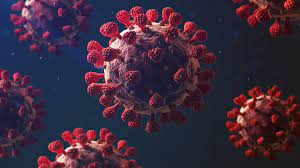
Timing and Accuracy of COVID Testing: Insights from Recent Research
In a recent study published in Science Advances, researchers shed light on the optimal timing for COVID-19 testing amidst evolving variants and immune responses. Conducted by Casey Middleton, a PhD student from the University of Colorado Boulder's Department of Computer Science, the study underscores critical nuances in detecting COVID-19, influenza (flu), and respiratory syncytial virus (RSV).
Middleton's team utilized a sophisticated computer model, factoring in Omicron variants and patient behavior, to gauge the accuracy of rapid COVID tests based on symptom onset. Their findings revealed a stark difference: testing too early after symptom onset led to a staggering 92% false negative rate for COVID-19. However, waiting until two days after symptoms appeared reduced this rate to 70%, increasing the likelihood of accurate COVID-19 detection.
Professor Daniel Larremore, senior author and expert from UCB's BioFrontiers Institute, emphasized that COVID tests are most effective when targeting individuals with high viral loads. He explained, "Diagnosing only one third of infections can still cut transmission substantially if we've diagnosed the most infectious third."
The study highlighted the slower replication rate of COVID-19 compared to flu and RSV, which impacts the timing of effective testing. Rapid tests for flu and RSV are recommended immediately upon symptom onset due to their faster replication cycles, whereas COVID-19 detection improves significantly two to three days post-symptom onset.
Larremore noted the challenges posed by new "three-in-one" virus home test kits, which aim to detect COVID-19, flu, and RSV simultaneously. He cautioned, "The timing might be right to catch COVID, but you are too late for flu and RSV."
The study's insights prompted Middleton to support updated CDC guidelines advocating for repeated self-testing before resuming normal activities. Middleton critiqued previous isolation policies, suggesting they often prolonged isolation unnecessarily.
As the COVID landscape continues to evolve, Middleton and Larremore's research underscores the importance of informed testing strategies tailored to the unique characteristics of each virus, ensuring effective public health responses amidst ongoing challenges.